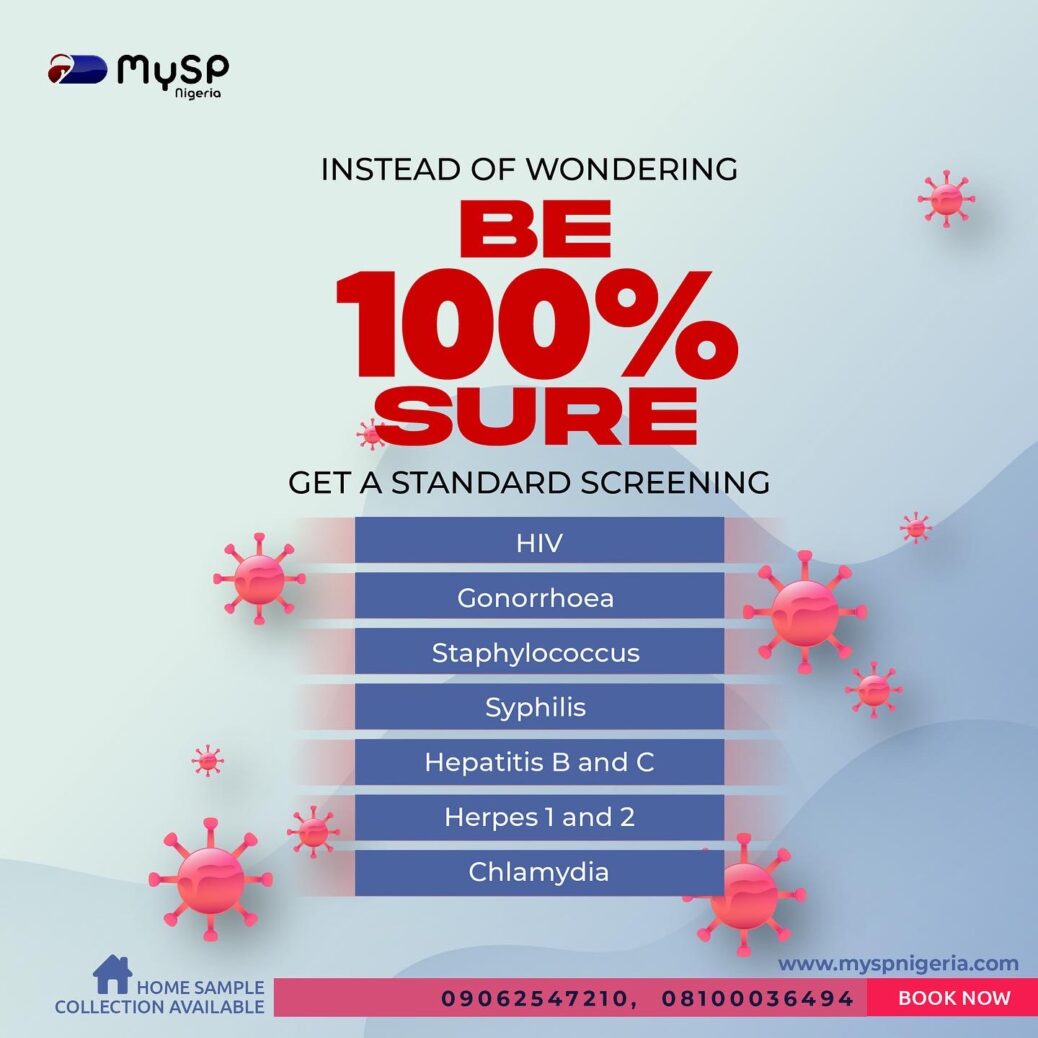What is Chlamydia
A typical STI that is brought on by bacteria is called Chlamydia. In the early stages of the disease, chlamydia patients frequently show no visible symptoms.
In fact, it’s believed that between 40 and 96 percent of chlamydia patients show no symptoms. Later on, chlamydia might potentially harm your health.
It’s critical to have routine tests for chlamydia and to consult your doctor or another healthcare provider if you have any concerns since untreated chlamydia can lead to significant consequences.
Chlamydia symptoms may resemble those of other STIs.
*AD: Know your sexual health status today, click Book Test to get started.
How does chlamydia spread?
The major methods of chlamydia infection transmission include oral sex without a barrier technique and intercourse without a condom or other barrier.
It need not be pierced in order for you to catch it. The bacterium might be transmitted by touching genitalia. Additionally, it can be contracted during anal intercourse.
Chlamydia can be passed from the mother to the baby during delivery. Chlamydia testing is often part of prenatal testing, but it doesn’t hurt to confirm with an OB-GYN during the first prenatal visit.
Although it is uncommon, oral or vaginal contact with the eyes might result in a chlamydia infection in the eye.
Even those who have already had the infection and successfully undergone treatment are susceptible to contracting chlamydia.

Estriol Vaginal Cream
Symptoms
Due to the fact that most chlamydia infections are asymptomatic, they are sometimes referred to as “silent infections.”
However, it can result in a number of symptoms in others, such as:
An uncomfortable burning feeling when peeing unusual discharge from the vagina or penis
Men and women may experience certain chlamydia symptoms slightly differently.
Men’s chlamydia symptoms
Many men fail to recognize the signs of chlamydia. Most males have zero symptoms.
The following are some of the most typical signs of chlamydia in men:
A scorching feeling when urinating
Lower back ache, testicular pain, and yellow or green discharge from the penis
The anus can also become infected with chlamydia. The primary signs in this situation are frequently:
Discharge discomfort and bleeding in this location
The risk of contracting chlamydia in the throat increases while having oral intercourse with an infected person.
The presence of a sore throat, a cough, or a fever are symptoms. It’s also possible to have undetected throat bacteria.
Signs of chlamydia in women
Often referred to as the “silent infection,” because chlamydia patients show no symptoms at all.
It could take many weeks before a woman has any symptoms after contracting the STI.
The following are some of the most typical signs of chlamydia in women:
Painful sexual activity (dyspareunia)
Burning with urinating and vaginal discharge
Lower abdominal discomfort cervicitis, cervicitis of the cervix, and bleeding between periods
Infections that extend to the fallopian tubes in certain women might result in pelvic inflammatory disease (PID).
The rectum can also be infected by chlamydia. If a woman has a chlamydia infection in the rectum, she could not exhibit any symptoms.
But if a rectal infection does develop, symptoms might include bleeding, discharge, and discomfort.
Women who engage in oral sex with a person who has a throat infection run the risk of developing one themselves.
Cough, fever, and sore throat are signs of a chlamydia infection in your throat, yet you might have it without knowing it.
If you encounter any of the aforementioned symptoms, it’s crucial to speak with a healthcare provider because the symptoms of STIs in men and women might vary.
Causes of Chlamydia
Chlamydia is a STI brought on by a particular bacterial strain called Chlamydia trachomatis.
It can be spread by genital touch, oral, vaginal, or anal intercourse without a barrier technique like a condom, as well as through vaginal discharge or semen.
Women are more likely than males to get chlamydia. In fact, it’s believed that overall infection rates in the Nigeria are two times greater for women than for males.

Clinival-V Vaginal Pessary
Get Clinival-V Vaginal Pessary
Here are some strategies to lower your risk contracting Chlamydia
Use barriers as a tool. Each time you engage in oral, vaginal, or anal intercourse, using a condom, dental dam, or another barrier technique can dramatically reduce the chance of infection.
Take a test. Regular STI testing can help stop the spread of chlamydia and ensure that you receive treatment if necessary.
Depending on your risk level, a doctor can help you decide how frequently you should get checked.
With your sexual partners, communicate. Chlamydia and other STIs are more likely to infect you if you have several sexual partners.
However, you may lessen this risk by utilizing barrier techniques each time you have sex and openly discussing STI prevention.
Don’t distribute sex toys. If you do decide to share any sex toys, make sure you wash them well after each usage and cover them with a condom.
Chlamydia therapy
Chlamydia is curable and is easily treatable. Antibiotics are used to treat it as it is bacterial in origin.
Antibiotic azithromycin is often provided in a single, substantial dosage. The antibiotic doxycycline has to be taken twice daily for roughly a week.
Other antibiotics may also be prescribed by a medical expert. Any antibiotic recommended should be taken exactly as directed in order to ensure that the illness is completely treated.
Even with the single-dose drugs, this might take up to two weeks.
It’s crucial to avoid having sexual relations while receiving therapy. Even after receiving treatment for a prior infection, chlamydia can still be transmitted and acquired if exposed again.
As bacterial infection is the cause of chlamydia, antibiotics are the only effective treatment for this kind of illness.
Prevention of chlamydia
Use of a condom or other barrier technique during sexual contact is the most effective strategy for someone who engages in sexual activity to prevent catching chlamydia.
It is advised to:
Apply the barrier technique to each new sexual partner.
Get routine STI testing done when dating new people.
Till you and a new partner have been tested for STIs, refrain from engaging in oral sex or use protection during oral sex.
People can prevent infections, unwanted pregnancies, and other consequences by following these precautions. If done properly, STI prevention is highly effective.











